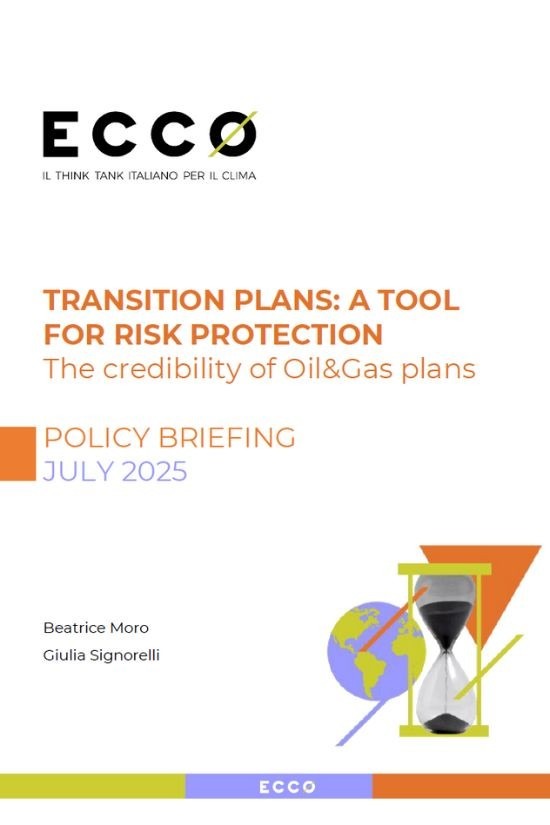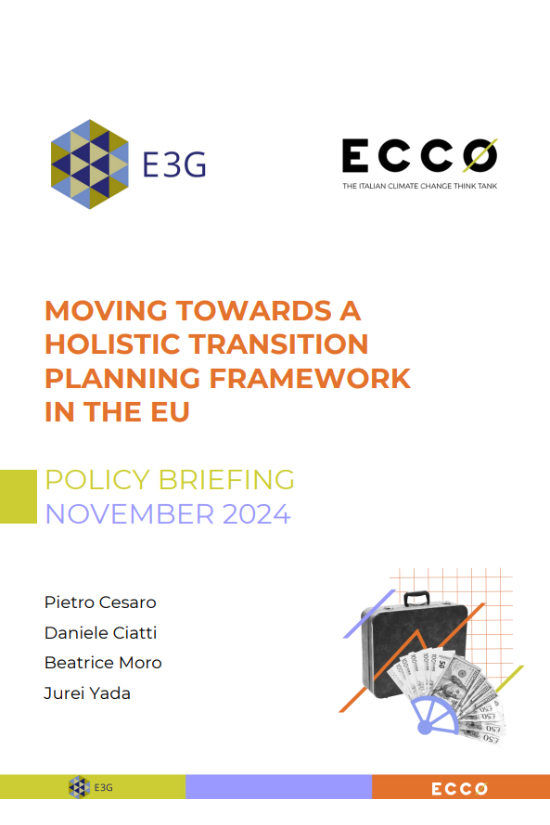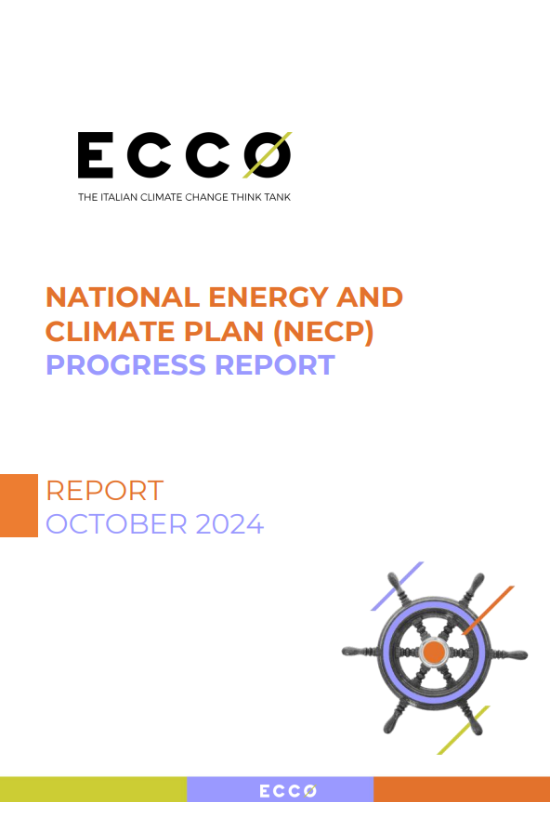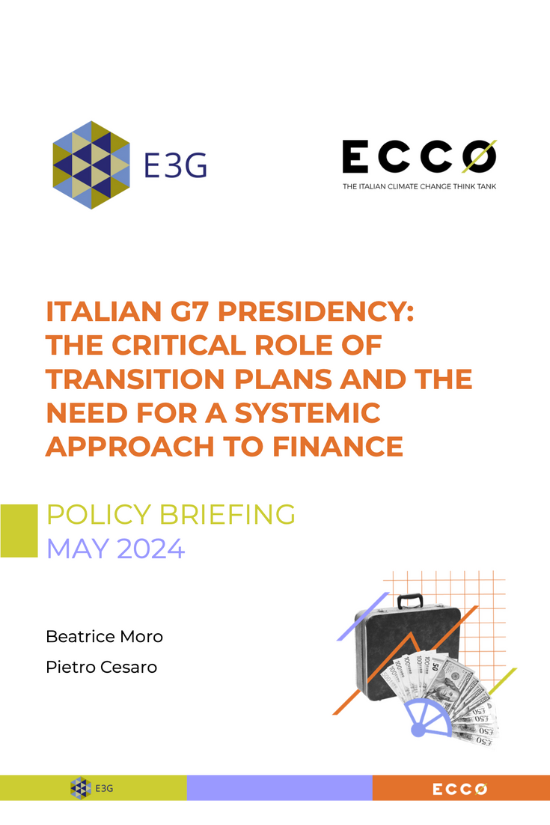Publications
Search
Filters
Authors
/ Alexandra Scott
/ Andrea Ghianda
/ Annalisa Perteghella
/ Beatrice Moro
/ Carolina Bedocchi
/ Caterina Molinari
/ Chiara Di Mambro
/ Chiara Mariotti
/ Chloe Pagliaro
/ Costanza Scano
/ Davide Panzeri
/ ECCO think thank
/ Eleonora Cogo
/ Federico Tassan-Viol
/ Filomena Annunziata
/ Francesca Andreolli
/ Francesca Bellisai
/ Gabriele Cassetti
/ Giovanni D'Amico
/ Giulia Colafrancesco
/ Giulia Giordano
/ Giulia Novati
/ Giulia Signorelli
/ Ilaria Mazzocco
/ Lorena Stella Martini
/ Luca Bergamaschi
/ Luca Iacoboni
/ Mario Noera
/ Marta Lovisolo
/ Massimiliano Bienati
/ Matteo Leonardi
/ Matteo Viola
/ Michele Governatori
/ Nicolas Drago
The Transition Plans published by Italy’s leading oil and gas companies exhibit significant shortcomings, particularly in the quantitative analysis of risks, the planned reduction in hydrocarbon production, and transparency around geographic and regulatory dependencies. For these plans to be credible, they must go beyond simple reporting, incorporating rigorous analysis and a clear governance strategy that reduces uncertainty and decisively channels investment toward truly sustainable solutions.
This briefing, authored by ECCO and E3G, takes stock of the EU transition planning framework initiatives and calls for a systemic approach – moving towards a simple and holistic transition planning framework that aligns various governance systems and policy tools within the EU, while ensuring consistency with international climate goals such as the Paris Agreement.
As a party to the Paris Agreement and as a member of the European Union, Italy’s national contribution is linked with that of other member states and, together, they are legally obliged to achieve a 55% reduction in net emissions, compared to 1990 levels, by 2030. The National Energy and Climate Plan (NECP) provides a national framework for countries to implement their emissions reduction commitments. A Plan that openly falls short of some of the objectives set by the Fit for 55 proposals.
Given the imperative to mobilize private investment at the scale required to address climate change, the effective deployment of funding, policies, and frameworks becomes paramount. In this context, it is imperative to place Transition Plans (TPs) at the heart of the G7 finance agenda as primary tools to re-orient and re-design private and public choices towards resilient and sustainable economic systems.
The Transition Plans published by Italy’s leading oil and gas companies exhibit significant shortcomings, particularly in the quantitative analysis of risks, the planned reduction in hydrocarbon production, and transparency around geographic and regulatory dependencies. For these plans to be credible, they must go beyond simple reporting, incorporating rigorous analysis and a clear governance strategy that reduces uncertainty and decisively channels investment toward truly sustainable solutions.
This briefing, authored by ECCO and E3G, takes stock of the EU transition planning framework initiatives and calls for a systemic approach – moving towards a simple and holistic transition planning framework that aligns various governance systems and policy tools within the EU, while ensuring consistency with international climate goals such as the Paris Agreement.
As a party to the Paris Agreement and as a member of the European Union, Italy’s national contribution is linked with that of other member states and, together, they are legally obliged to achieve a 55% reduction in net emissions, compared to 1990 levels, by 2030. The National Energy and Climate Plan (NECP) provides a national framework for countries to implement their emissions reduction commitments. A Plan that openly falls short of some of the objectives set by the Fit for 55 proposals.
Given the imperative to mobilize private investment at the scale required to address climate change, the effective deployment of funding, policies, and frameworks becomes paramount. In this context, it is imperative to place Transition Plans (TPs) at the heart of the G7 finance agenda as primary tools to re-orient and re-design private and public choices towards resilient and sustainable economic systems.



